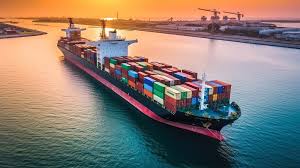Maritime safety: Council and Parliament strike a deal for more efficient accident investigations in maritime transport

Brussels: To ensure safer maritime journeys in Europe, the Council presidency and European Parliament’s negotiators reached a provisional agreement to revise the 2009 directive on the investigation of accidents in the maritime transport sector. The new legislation forms part of the so-called ‘maritime safety’ legislative package.
The revised directive aims to simplify and clarify the existing regime governing the investigation of accidents in the maritime transport sector. The extension of its scope to include larger fishing vessels, together with other changes concerning such vessels in the closely related port state control and flag state requirements directives, will improve the safety of fishing vessels in European waters.
More specifically, the new directive aims to:
improve the protection of fishing vessels, their crews, and the environment, with fishing vessels more than 15 metres in length now included within the scope of the directive, meaning that accidents involving fatalities and loss of vessels will be investigated in a systematic and harmonised way
clarify the definitions and the legal provisions so that member states’ accident investigation bodies investigate all accidents that need to be investigated in a timely and harmonised manner
enhance the capacity of accident investigation bodies to conduct and report on accident investigations in a timely, expert, and independent manner
update several definitions and references to relevant EU legislation and IMO regulations, to ensure clarity and consistency.
Key elements of the new legislation
The general thrust of the Commission’s proposal has been retained by the co-legislators. However, several amendments to the proposal were introduced to the text, mainly aiming to enable accident investigation bodies to conduct accident investigations in a harmonised way throughout the EU by making the existing rules clearer and more consistent with international regulations. Other amendments aim to strengthen the provisions regarding the independence of accident investigation bodies and the confidentiality of their findings, and to reduce unnecessary administrative burdens.
More concretely, the provisional agreement covers inter alia the following aspects:
alignment with the IMO casualty investigation code on the obligation to inform maritime security authorities if the accident investigation body suspects that an offence has been committed
provisions related to the conformity check were adjusted in line with several other pieces of EU maritime legislation, such as the maritime equipment directive
a voluntary approach regarding the quality management system for national investigation authorities accompanied by guidance for its implementation
a 2-month deadline was introduced for the preliminary assessment in case of accidents involving smaller fishing vessels.
Overall, the revised directive achieves a careful balance between, on the one hand, the need to ensure a high standard of shipping and, on the other, the need to safeguard the competitiveness of the European shipping sector, while also maintaining reasonable costs for operators and member states’ administrations.





